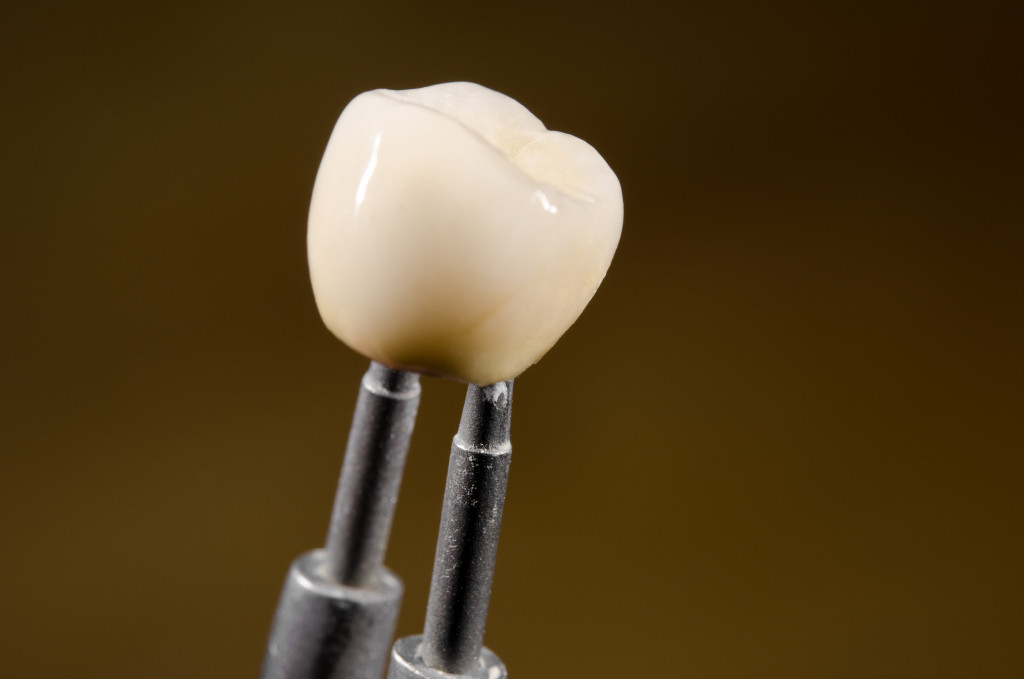- Visiting the dentist as soon as possible is essential to deal with tooth breakage.
- Exploring restorative treatment options is important in order to find the best solution for replacing missing teeth.
- Minimizing stress on teeth is key to preventing further damage or discomfort.
- Making lifestyle changes such as brushing and flossing regularly, eating a balanced diet, and avoiding sugary snacks.
- If your tooth has already been weakened, you must speak with your dentist to determine the best course of action.
It can be a shocking, unsettling experience when your tooth suddenly breaks. Suddenly, you have to contend with pain and the possibility of undergoing extensive dental treatments to restore your smile. However, it’s important to understand the causes of tooth breakage and how you can manage this situation with the right actions to minimize further damage or discomfort. Here are five tips for dealing with tooth breakage.
1. Understand the Causes of Tooth Breakage
The first step to dealing with a broken tooth is understanding why it happened in the first place. There are many potential causes, such as trauma from an accident, grinding your teeth, or decay that has weakened the structure of your tooth over time.
In some cases, genetics can also be a factor if your teeth are naturally more brittle than others. It’s important to identify what caused your particular incident so that you can take steps to prevent it from happening again in the future.
2. Utilize Therapeutic Solutions to Manage Pain and Inflammation
When your tooth breaks, it’s common to experience significant pain and inflammation in the area. To manage this discomfort, you should utilize some therapeutic solutions, such as cold compresses or over-the-counter pain medications. Additionally, some dentists may recommend taking antibiotics to keep infection at bay during the healing process.
3. Explore Restorative Treatment Options
Depending on your circumstances and the severity, you may have multiple restorative treatment options. After consulting with your dentist, they will discuss which option best suits your needs and provide a timeline for when you can expect the procedure to be completed.
For example, if you need a crown or bridge replacement, your dentist may recommend waiting several weeks until the new permanent tooth is ready before beginning treatment. If you have lost one or more teeth due to trauma, dental implants are viable. This is often considered to be the best solution for replacing missing teeth as it does not require neighboring teeth to be altered in order to accommodate the replacement, as is the case with bridges.
4. Minimize Stress on Teeth
In addition to visiting the dentist as soon as possible and exploring restorative treatment options, it’s important to take steps to reduce stress on your teeth to prevent further damage or discomfort.
This can include avoiding crunchy or hard foods that are more likely to cause additional trauma and replacing any old fillings with a newer composite material designed to distribute force evenly across the entire surface of your tooth. Additionally, if you struggle with bruxism (teeth grinding), you should discuss this with your dentist, who can provide a custom-fitted night guard to protect your teeth from further damage.
5. Make Lifestyle Changes to Prevent Further Damage
In addition to reducing stress on your teeth, it’s essential to make lifestyle changes to help prevent tooth breakage. This includes brushing and flossing regularly, eating a balanced diet of nutritious foods, cutting down on sugary snacks and drinks, and avoiding tobacco products.
Additionally, if you notice signs of decay or sensitivity in any of your teeth, visit the dentist as soon as possible so that they can diagnose the problem before it progresses into something more serious.
FAQs
What should I do if my tooth suddenly breaks or chips?
If your tooth suddenly breaks or chips, the best thing to do is contact a dentist as soon as possible. A dentist will be able to assess the damage and provide you with the necessary care and treatment that you may need to restore your oral health.
How can I reduce the risk of breaking my teeth?
You can reduce the risk of breaking your teeth by avoiding hard foods such as candy, ice, and nuts, which can put extra pressure on weak or damaged enamel. In addition, it’s essential to practice good dental hygiene habits so that your teeth remain strong and healthy for years to come.
What happens if I don’t get my broken tooth fixed?
If you don’t get your broken tooth fixed, it can lead to severe issues like infection or decay. Without treatment, your oral health may become severely compromised, and you may risk developing other dental problems, such as gum disease.
How likely will I experience further breakage if my tooth has already been weakened?
If your tooth has already been weakened due to wear and tear, decay, or other factors, you’re at an increased risk of further breakage. You must speak with your dentist, who can help determine the best course of action for restoring your oral health.
In Closing
Dealing with a broken tooth can be a stressful experience. However, by understanding the causes of tooth breakage and taking the proper steps to manage this situation, you can prevent further damage or discomfort and restore your smile in no time. Taking action now will ensure that your smile stays healthy and beautiful for years to come!

